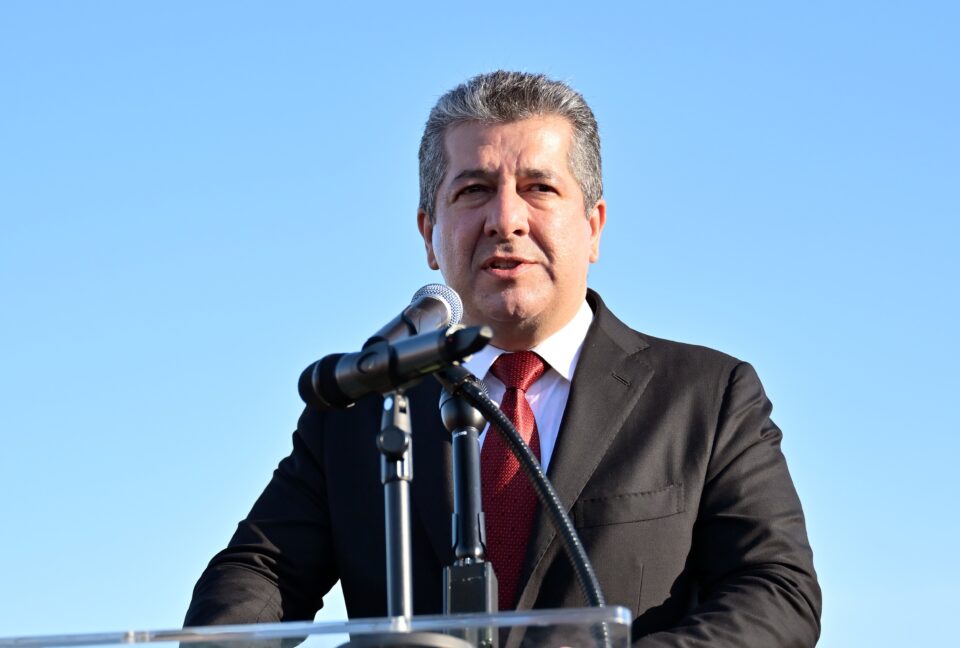Sema
“PM Barzani’s visit comes at a time when Erbil is deeply frustrated with Baghdad’s failure to uphold constitutional agreements—especially in matters of oil revenues and federal budget entitlements,” Waisy stated.
Kurdistan Region Prime Minister Masrour Barzani’s current visit to the United States has been described as “exceptionally strategic” as it comes at a critical juncture in both domestic and regional politics. The visit marks the first of its kind by a Kurdish leader under the Trump administration, underscoring Washington’s intent to strengthen its partnership with the Kurdistan Region of Iraq.
Noreldin Waisy, Press Secretary and Media Adviser to Prime Minister Barzani, emphasized the significance of the visit, which comes in response to an official invitation from the U.S. government. He said the visit is a milestone for Kurdish-American relations and serves as an opportunity to advance shared strategic interests.
Waisi emphasized that the KRG is not seeking conflict but rather a constitutional resolution to its disputes with Baghdad. His remarks came during an interview with the London-based Arabic-language daily newspaper Al Arab, where he elaborated on the region’s priorities ahead of PM Barzani’s meetings in the U.S.
“This visit is crucial not just for bilateral relations but for amplifying the Kurdistan Region’s perspective to the international community,” Waisy stated. “It comes at a time when Erbil is deeply frustrated with Baghdad’s failure to uphold constitutional agreements—especially in matters of oil revenues and federal budget entitlements.”
Barzani’s agenda in Washington includes high-level meetings with senior U.S. officials, members of Congress, policy think tanks, and American investors. He is also expected to take part in a specialized energy forum, where multiple agreements and MoUs with leading U.S. energy firms are anticipated.
Tensions with Baghdad Take Center Stage
Waisy accused the federal government of systematic financial pressure, including the deliberate withholding of Kurdistan’s share of the federal budget and delay in civil servant salaries.
He blamed Baghdad for violating multiple signed agreements, including the foundational “State Administration Agreement” that led to the formation of Iraq’s current government. “The federal government’s actions reflect a deeply entrenched centralist mindset that seeks to undermine the constitutional rights of the Kurdistan Region,” he said.
The core grievance centers on what Waisy described as “chronic violations” of revenue-sharing principles. “Despite the Kurdistan Regional Government’s transparency and legal compliance, Baghdad continues to use financial entitlements, particularly salary payments, as a political tool,” he added.
Energy Export Impasse and Federal Overreach
Touching on the energy file, Waisy said the federal government’s ongoing obstruction of oil exports from the Kurdistan Region—now lasting over two years—has inflicted losses amounting to billions of dollars on both the regional and national economies.
“Baghdad’s aim is clear: to keep Kurdistan excluded from the global energy map and force concessions that infringe on our constitutional authorities,” Waisy noted. “This is a broader effort to dominate Iraq’s wealth through centralized control.”
Public Opinion Warfare
Waisy also criticized what he called a “disinformation campaign” by certain Baghdad politicians who portray the Kurdistan Region as a burden on the rest of Iraq. “They frame the delayed and partial salary payments as a benevolent gesture rather than a constitutional right,” he said. “In reality, what is sent to the Region accounts for less than 5% of its rightful entitlements—far below the 14% share affirmed by recent demographic data.”
A Call for International Support and Federal Reassessment
Concluding his remarks, Waisy expressed hope that Barzani’s meetings in Washington would garner stronger international support for Kurdistan’s constitutional rights and further institutionalize its strategic alliance with the United States.
However, he warned of rising risks: “If Baghdad continues down this centralist path, the result could be irreversible deterioration in Erbil-Baghdad relations—jeopardizing not only the political balance but also the broader stability of Iraq.”
Waisy called on the federal government to take immediate and concrete steps to redress grievances and restore mutual trust. “The ball is in Baghdad’s court,” he said, “but the consequences of inaction will be felt across the entire Iraqi political landscape.”

